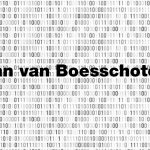UK fintech Thought Machine has come a long way in the seven years since it launched its Google-like core banking platform, but it still only feels like the beginning for a supplier created to solve the banking legacy puzzle.
In 2014, a group of former Google executives announced Thought Machine and its all-in-one cloud-based core banking software, known as VaultOS.
It was hailed as the future, and an opportunity for large traditional banks to throw off the shackles of legacy systems and, like their digital-focused challengers, harness the latest technologies.
Legacy IT systems are expensive to maintain and inflexible when it comes to launching new digital offerings. Thought Machine offers banks an opportunity to migrate customer accounts to a cloud-native platform.
There have been many false dawns in the past and the legacy replacement debate has been part of the banking IT sector for decades. But Thought Machine’s rapid rise to unicorn status and its impressive customer base points to a new dawn.
Thought Machine became a unicorn, worth more than $1bn, earlier this year, and it is not just courting traditional banks with answers to legacy challenges.
Founder Paul Taylor, at one time Google’s head of text-to-speech, said the company’s customer base includes both traditional banks, with their IT legacies, as well as challenger digital-first finance firms. “We are having serious discussions with perhaps half a dozen of the large banks and talking to dozens of the smaller digital banks,” he said.
Customers
Traditional banking giants Lloyds Banking Group, JPMorgan Chase, SEB, Standard Chartered and BBVA have joined challengers such as Atom bank and payments fintechs TransferGo and Curve as customers of the London-based fintech.
In terms of traditional banks, two contracts stand out. Over two years ago, Thought Machine started working with Lloyds Banking Group, and recently added JPMorgan Chase to its customer base.
The Lloyds Bank contract was a huge vote of confidence when it was signed two years ago, announcing plans to migrate 500,000 customers from its Intelligent Finance division to a platform from Though Machine.
According to Chase chief information officer Rohan Amin, the JPMorgan Chase contract will enable the bank to take full advantage of the cloud, and it’s having the same impact in the US – where the company is currently expanding – that Lloyds Bank had in Europe.
Taylor said: “Since the JPMorgan deal was announced we have had a lot of inquiries. It has shot off the scale.” Thought Machine’s first US customer was Arvest Bank, which in September signed a contract to use the technology in its digital transformation.
Meanwhile, like other fintechs, Thought Machine has received an unexpected boost in interest from banks amid the global Covid-19 pandemic. Its spread across the world and the lockdowns that followed forced people to use digital banking services, which has had a lasting impact. People from all age groups are now using online- and app-based services as their preferred banking channels.
This has driven more IT investment from traditional banks as customers’ demands changed almost overnight.
Taylor said: “People are happy to continue with their behaviours until something changes,” adding that cash usage has now “dropped off a cliff” and banks are asking “why should we have a branch?”
While this is driving the take-up of digital banking with the ability to offer online and mobile services at the customer-facing end of the business, it is the resulting challenges in the backend of banking operations that is providing the biggest opportunity for Thought Machine.
“The thing that has made the difference for us is that banks have become overwhelmed by customer interactions,” he said. “The banks just cannot afford to have people in call centres doing all this routine stuff.”
Transforming bank operations
As a result, Taylor believes the impact of the pandemic will be similar to the financial crash of 2008 in transforming bank operations.
“After the banking crash, banks were kind of forgiven, but told they could not let it happen again, and I think a similar thing will happen after the pandemic,” he said. “Banks won’t be able to use system [inadequacy] as a reason for not being able to provide services to customers.
“Banks are going to be told by regulators: ‘We are out of the pandemic and if we say you need to provide something you cannot just say your systems can’t do it’.”
Thought Machine now employs 500 people, an increase from 270 in March last year. Just under 400 are in London, with 70 in Singapore. The company will soon have 10 people in Australia and is recruiting for its recently opened New York Office.
Taylor is heavily influenced by Google following his time at the internet giant. He was an academic at Edinburgh University in the 1990s and focused on search technology, artificial intelligence and machine learning.
He then moved on to set up two companies – one of them, Phonetic Arts, was acquired by Google in 2010, which became the text-to-speech system for Google. This is the system behind the driving directions and voice search from Google.














